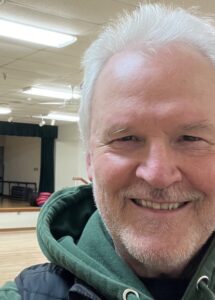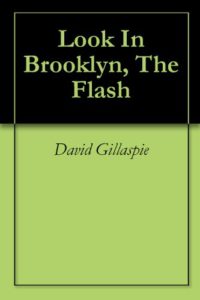
This is one of the more engaging cancer stories.
In my research of cancer stories for my memoir, I’ve read a few. This is a great cancer story from the New Yorker.
Thanks to facebook friend Pam Parker for the link.
It’s about the individual who doesn’t fit the system just right.
It’s about the loneliness of waking up and remembering the last chemo drip and hoping the hot sauce is cooking more bad cells than good.
It’s about the haz-mat suited nurses handling the meds, and there you are in a hospital gown.
Anne Boyer writes an essay for the Personal History part of the New Yorker titled ‘What Cancer Takes Away.’
Note that it’s not past tense with, ‘What Cancer Took Away.’ There’s a reason I’ll get to below.
Ms Boyer takes us on an urgent run through breast cancer treatment in present tense. Like writing a screenplay, the action is happening in the moment. For example:
Being a writer makes me a servant of sensory details, issuing forth page after page. I am certain that my illness would make a better story if it were someone else’s. Who would want to hear the hammer always complaining about its meeting with the nail? The slightly ill but undiagnosed are better narrators than the truly ill. Their suffering is not so overdetermined. They can be lavishly self-defined, poetic with the glamour of the sick person’s proximity to finality.
Does anyone else here Camille’s gentle cough?
Garbo’s portrayal of the beautiful but sickly Parisian courtesan, who fatefully falls in love with a young French nobleman (25 year-old Robert Taylor), is widely considered the definitive version of the Camille story. Garbo’s first talkie film, Anna Christie, was advertised with the promotional line: “Garbo Talks!” – so naturally, jokes at the time suggested that this film should be advertised as: “Garbo Coughs!”
A sense of mortality links every fatal disease right until the last moment.
Cancer Stories Help And Hurt
Ms Boyer lifts every writer of cancer stories with this:
My cancer was not just a set of sensations or lessons in interpretation or a problem for art, although it was all of these things. My cancer was a captive fear that I would die and leave my daughter in a hard world with no resources, a fear, too, that I had devoted my life to writing and sacrificed all I had and never come to its reward.
I will say right now that criticizing cancer stories is the wrong thing to do.
It just is, but that said, I’ve gotten my ass kicked by cancer industry people more than once for the same thing Anne wrote to open two sentences.
“My cancer.”
After the last time I said “my cancer” and the furious response I heard, that was it. Never said “my cancer” again.
Like Michael Becker, Anne Boyer includes names of chemo and their side effects. It’s proof they both paid attention during treatment. Both cancer stories, and others as well, leave out the all important swearing and spitting and kicking, and the grace of self forgiveness.
But maybe that’s just sex cancer?
I’m a fan of holding up a mirror to experience, especially when I’m included in the reflection, but these cancer stories miss the part about failing, falling, lying, and cheating.
No one should pre-order a Grafco body bad from Amazon to stash under the bed to keep things neat later. ($10.50 with a five star rating.)
Doctors Help Cancer Stories, But
Why dwell in the realm of doctors while breaking out a memoir, unless you’re a doctor. It makes you sound like you didn’t fulfill your medical school dream, but you’re proving them wrong now.
Memo to writers of harrowing cancer memoirs: doctors do their job so you can do yours. You don’t have to do it all.
From the NYer:
For a long time while I am sick, I feel as if I am probably dead, haunting the earth’s slightly familiar territory, a traveller to an afterlife that, for whatever reason, I am sometimes allowed to believe is real. If I were still alive, I think, I’d have at least visited California. I read later that feeling like you are dead can be caused by certain kinds of brain damage, such as the kind I’ve endured from chemotherapy. I’m a ghost, but my loss of me isn’t even metaphysical—it’s mechanical. Still, the rational explanation of why I feel dead half the time does little to mediate the irrational horror of existing as if I do not. Here we are, here I am, alone and myself, half of me fallen off, half of us gone.
Anne isn’t writing about half a person, but someone who sees only half a person. What’s missing? The good half?
The biggest job of cancer people is finding the other half, the missing parts. Why is life after treatment called a new normal? You hear that all of the time. Why? Because this shit breaks you down like no other. It is the hammer and we are the nail.
Or put another way, cancer is not Your Cancer. It’s just cancer, the luck of the draw, genetics, or environment. We see it, find it, kill it, then do something with it. That last part is most important, doing something with it.
We’re all conditioned to think of the battle, the war, and the end of the battle, the war, against cancer. Those words work best with docs looking for better outcomes than a lifetime of post cancer dread. Get your war on, docs.
The memoir I’m waiting for, the cancer stories I’m looking forward to, are those who treat cancer like the joy robbing, mood killing, life robbing, sneaky fucker it is; the one guest that needs to be taken down to the lower forty in a weighted gunny sack and drowned in the stream.
That is the story I’m ending this to work on.


